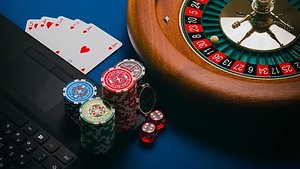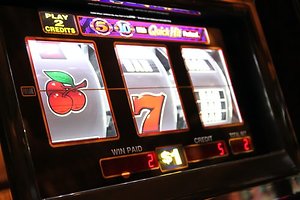About gambling addiction (compulsive gambling).
Gambling addiction is a big problem in the UK. Over the last 20-25 years, the internet has made access to all types of gambling much easier. We no longer have to go to the local ‘bookies’, the casino or the amusement arcade. Although these ways of gambling are still out there, they can now all be accessed from the comfort of your own home. Even lottery tickets are now available on-line. It has never been so easy to gamble as it is now. On-line roulette and ‘slots’ (on-line fruit machines) are very popular but scratch cards, lottery tickets and fixed odds betting terminals in bookmakers (now thankfully, limited to £2 a stake) are just as dangerous.
Gambling addiction is often referred to as the ‘hidden addiction’ and is perhaps the least understood. With alcoholism and drug addiction there are noticeable physical changes and health risks that we know about and can often see in the addict. Although these can go unnoticed or denied for a while, over time they become obvious to the people around us.
Gambling addiction is easier to hide, because any physical changes are less obvious. Gambling does not affect our normal day-to-day abilities in the way being drunk or affected by drugs would. However it can still show itself through moodiness, agitation, anxiety or depression. It can also lead to alcohol abuse alcoholism dependency and other addictions. These addictions often coexist and feed off each other.
As gambling is easier to hide, problem gamblers will sometimes carry on gambling until it has been an issue for a long time, has caused extensive problems and caused what seem like insurmountable debts. Gambling promises big wins, so an addict always believes that they can win back money they have lost. The reality is that even if someone with a gambling addiction wins a large amount, they probably will not stop.
Over time, problem gambling not only causes financial problems, it brings with it anxiety, depression, stress, relationship breakdowns, loss of employment, loss of time, alcoholism, drug taking and ultimately the anxiety, depression and trauma caused can lead to tragedy. An extensive study published in 2019 showed that gambling addicts are 15 times more likely to attempt suicide than average.
If you need help with feelings of hopelessness visit Samaritans or phone: 116123
What are the signs of gambling addiction?
Some of the symptoms a problem gambler might have are:
- Unreliability and losing track of time while gambling, because of the inability to stop.
- Preoccupation with gambling that gets in the way of normal life, and takes us away from family and friends.
- Damaged relationships, often because of financial problems and misplaced priorities.
- Not being able to control the amount of time or money spent gambling.
- Denial of the problem to those around them and also to themselves.
- Minimising, lying and hiding the amount of time and money spent gambling.
- Employment issues caused by lack of concentration and distraction, or poor time management, leading to a perceived increase in workload and the resulting stress. Absences due to depression, anxiety as well as time spent gambling can lead to disciplinaries and job losses.
- Borrowing or stealing from family, friends or employers in order to fund gambling or pay back money that has been lost.
- Gambling addicts will often seem distracted, withdrawn, agitated. They can be constantly edgy and moody when away from gambling.
- Gambling addicts often suffer from anxiety, depression, drug dependency and alcoholism.Problem gambling can also cause headaches; sleep loss; impatience and irritability; weight loss due to a lack of appetite; stomach pains, diarrhoea and nausea; impulsive or bad decision making; and of course a lack of financial stability.
Click here to do a self-assessment.
What causes gambling addiction?
Most of us like the feeling of winning. The dopamine rush that we feel when our numbers come in, or the right cards are dealt – that is what we’re after. But the addict always wants more and more pleasure and when they get it, it’s never enough. The truth is that with most gambling addicts, gambling becomes more about the ‘thrill of the chase’; the adrenaline rush when the fruit machine reels are just about to stop, or the ball is spinning round the roulette wheel. By then it is not about whether we win or lose anymore, because even if we win, the thrill never matches the excitement of the first ‘big one’. The addict is chasing something that they will never find again, but they still keep trying to achieve it.
There are a variety of reasons why we might become addicted to gambling. Most of us try gambling at some point, but what if luck is on our side at the beginning? The temptation to carry on can be strong, but most people would take their winnings and celebrate wouldn’t they? The potential addict will go back time and again to try to win more. The reality is that the winning always stops at some point. But when the tide has turned, the potential addict will then try to win back the losses and now the downward spiral has started.
For the addict, gambling can be a distraction from other problems. Once we are gambling, everything else fades away and nothing else matters – all our other problems can be forgotten for now. It can be a way of killing time and escaping loneliness or isolation, or a way of escaping social anxiety and awkwardness.
Visiting the ‘bookies’ or the casino can be a way of overcoming social isolation, or relaxing after work. It can be a way to alleviate boredom and ‘kill’ time.
Gambling addiction often goes hand in hand with mental health issues such as anxiety and depression, as well as alcoholism and drug use/drug abuse. It is another way of escaping other problems and unresolved uncomfortable feelings.
For more information click HERE.
The myths around gambling addiction.
There are plenty of myths about what is and isn’t problem gambling, such as:
Compulsive gamblers gamble every day…
This is true of some compulsive gamblers, but not all. However what started as a casual pastime has become a problem. Even if the addict only gambles sometimes, they are still gambling money that they can’t afford, regardless of the consequences. Once betting or gaming gets in the way of day-to-day life, it has become a problem.
Or:
It’s not a real addiction like drugs or alcohol addiction. It’s a choice…
Compulsive gambling is a psychological condition just like other addictions. At some stage the idea of choice has gone and the obsession has become so powerful it gets in the way of everyday life. Compulsive and pathological gambling are listed in the World Health Organisation’s DSM-5 as a ‘mental health disorder’.
Here are more examples of the myths.
These myths are often encouraged by gamblers themselves, because they are in denial and do not want to admit to having a problem to themselves.
How can counselling help? What does a counsellor know about it?
You may of course have a gambling problem without it (yet) being totally out of control. I can help you to overcome this before it becomes worse. This website also offers some useful tips.
I am a Gamcare-trained counsellor (Gamcare are a recognised problem gambling counselling organisation). I worked for Breakeven (Gamcare’s local partner) for two years, and have counselled more than 40 clients with gambling problems. I have also spent two years as a counsellor/keyworker in a well-regarded local residential addiction rehab. My own experience helps me to genuinely understand what it is like to be trapped in the cycle of gambling addiction, and all of the associated problems that come with it.
Compulsive gambling affects all the people who come into contact with us. So I provide counselling for either the gambling addict, or I can be a counsellor to anyone affected by their behaviour.
If you believe that gambling has become a problem for you or those around you, I will help you to discover possible reasons for your gambling and also look at what might trigger you to gamble. Often, compulsive gambling starts off as a harmless pastime, but various circumstances in our lives can cause it to become an escape or even a way of (sometimes) making quick money. I will work with you to explore your gambling and together we can develop strategies to overcome your compulsion to gamble. My personal experience of gambling addiction and subsequent recovery helps me to understand the problem and not to judge you. I will be honest, open and challenging if need be.
For those affected I can help you to understand the gambler. We will discuss your options and I will teach you how to look after yourself in a difficult situation. For you it is difficult to know what to do and part of you wants to deny that it’s happening. The gambler may have sworn to stop again and again, and each time you have believed them and given them a ‘last chance’. I will help you to make decisions that may be hard and open your eyes to how the compulsive gambler’s mind works.
There are several organisations that also offer help for gambling problems. Some offer short-term counselling with a trainee and qualified counsellors - I have listed some of them at the bottom of the page. Click on any of them to go direct to their websites.
What I offer is quick access to personal one-to-one professional counselling in a safe, comfortable setting. I am fully qualified and Gamcare trained, as well as having personal experience of gambling addiction and extensive experience of working with compulsive gamblers and those affected by them.
You can get in touch with me by clicking here.
Other helpful organisations:
Gamblers Anonymous (GA)
Gamanon (for those affected by gamblers)
Gamcare
Breakeven




